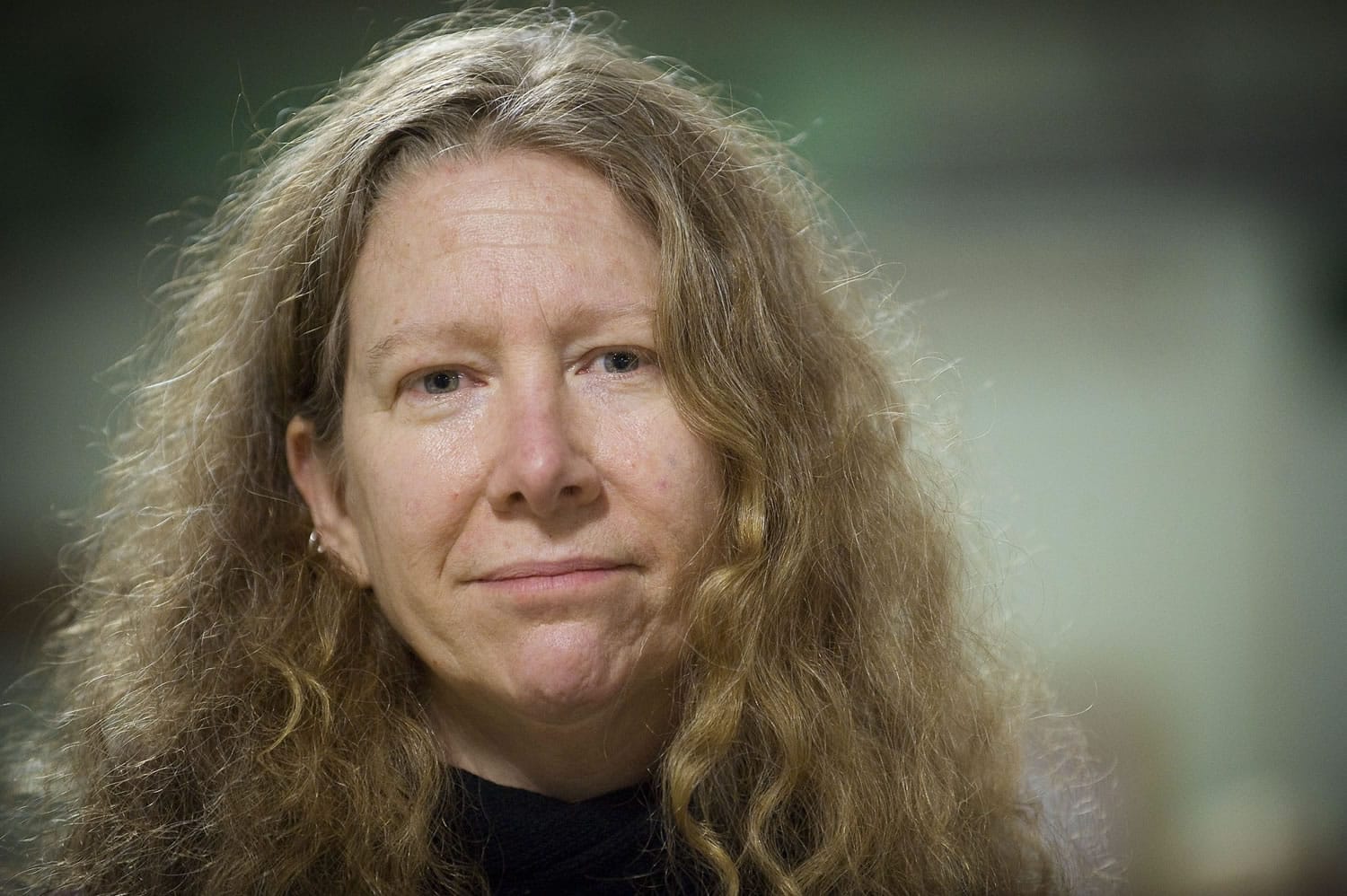In 1984 Desiree Hellegers came to groovy, forward-thinking Seattle, the city that grew Starbucks and Microsoft, and went to work at homeless shelters in the shadow of the Space Needle.
Just as she was struck by the disconnect between Seattle’s glitter and its grit, Hellegers was struck by the disconnect between the clinical forms she had to fill out every day and the powerful language homeless women used to describe their lives and struggles.
“To me it raised questions about … the complexity of the stories homeless people tell about their lives and that very clinical way they’re represented in media accounts and public policy debates,” she said.
This fall Hellegers, now an associate professor of English and a founder of the Center for Social and Environmental Justice at Washington State University Vancouver, published the true, terrible and sometimes triumphant stories of 15 women who have been homeless in Seattle.
“No Room of Her Own: Women’s Stories of Homelessness, Life, Death and Resistance” is based on years of interviews that Hellegers conducted and recorded with women who “talked about their lives on their own terms,” she said.
“We rarely ever hear the homeless speak about their own experiences,” Hellegers said. “We need to hear about the sheer brutality of homelessness. We need to hear in their own voices about the terror of spending even a single night on the street.”
That terror includes all sorts of health risks and degradations — from infectious disease to exhaustion — as well as the threat of random, unprovoked violence, Hellegers said. She was on hand Wednesday morning at homeless ministry Friends of the Carpenter for its annual observance of National Homeless Memorial Day.
She pointed out that a report by the National Law Center on Homelessness & Poverty called “Hate, Violence and Death on Main Street USA” makes clear that homeless people are far more likely to be the victims of crime than the perpetrators.
“We often speak of homeless people as predators when they are much more frequently prey,” said Hellegers, 50.
For example, there’s the 2006 death of Douglas Dawson, a homeless amputee who got around Spokane in a wheelchair — and who was set on fire while sleeping in his wheelchair one night. And there’s the murder of a woman who called herself Sunshine, and who died in “The Jungle,” Seattle’s massive homeless camp in its International District, after being unable to find anywhere else to stay.
The idea that homeless people are somehow fair game for mischief — less intelligent, less deserving of respect, less human than the rest of us — was a major reason why Hellegers wanted to let them speak in their own words through her book, she said. Homeless people can bring a valuable moral critique of modern America, she said.
“There’s been a failure of civil society and a callousness that raises questions,” she said. “How is it that we can step over sleeping bodies in doorways and somehow find ways to rationalize it?”
Hellegers supports making homelessness a protected class in national hate-crime legislation. In other words, a criminal who targets a homeless person and who was motivated by hatred or bias would get a stiffer sentence. National hate-crime laws already protect race, religion, nation of origin, sexual orientation and disability.
“The media accounts of homeless people in the Occupy movement are reinforcing the dominant, dehumanizing stereotypes,” she said. “I’m hoping this book lends some weight to the effort to push back.”




